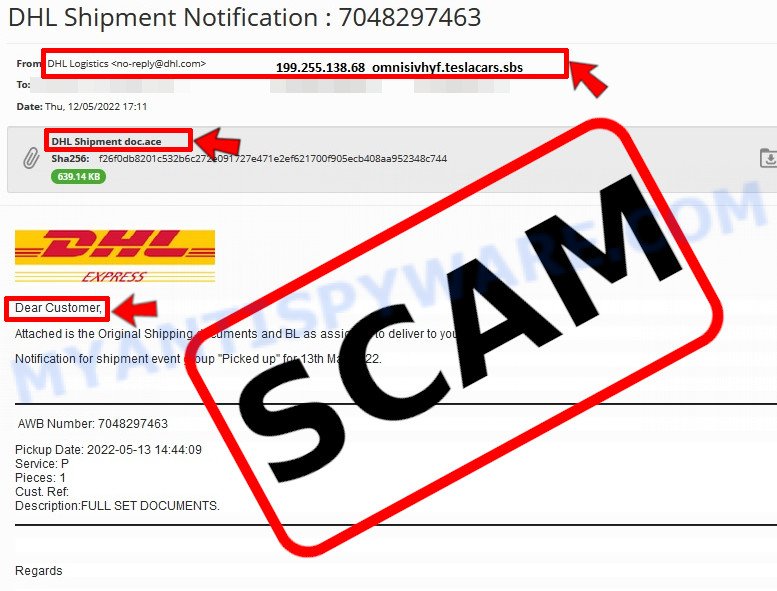Myantispyware wants to alert you about the John Travolta Foundation Email Scam. This is a fake email scam that targets people by promising a huge donation of $500,000 from the so-called John Travolta Foundation. But don’t be fooled! This email is not from any real foundation. Instead, it’s a trick to get you to contact a fake “Claims Department” using an email like johntfoundation445@gmail.com.
This scam pretends to be generous, but all it wants is to lure you into giving your personal information. These scam emails can land in your inbox out of nowhere and often look convincing. They might make you think you’ve won money or have a big donation waiting for you. Their aim is to get your trust and then steal your personal details or money.
💡 If you get an email like this, don’t reply or click on any links. It’s important to be alert and protect yourself from scams. Just delete the email right away and consider blocking the sender to stop future scams. Stay safe by keeping your personal information private and not sharing it with unknown sources.
A typical “John Travolta Foundation” scam email reads as follows:
Subject: JTF02304
You have received a donation of Five Hundred Thousand United States Dollars ($500,000) from the John Travolta Foundation. To make your donation, contact the Claims Department at johntfoundation445@gmail.com with the code JTF02304.
John Travolta FoundationSie haben von der John Travolta Foundation eine Spende in Höhe von fünfhunderttausend USD (500.000 $) erhalten. Kontaktieren Sie die Schadensabteilung unter johntfoundation445@gmail.com mit dem Code JTF02304, um Ihre Spende zu tätigen.
John Travolta Foundation
Summary Table
| Name | John Travolta Foundation Email Scam |
| Type | Phishing Scam |
| Target | Email recipients |
| Bait | Fake donation claim |
| Contact Email | johntfoundation445@gmail.com |
| Code | JTF02304 |
📧 What to Do When You Receive the “John Travolta Foundation” Scam Email
We advise everyone who receives this email to follow the simple steps below to protect yourself from potential scams:
- ❌ Do not believe this email.
- 🔒 NEVER share your personal information and login credentials.
- 📎 Do not open unverified email attachments.
- 🚫 If there’s a link in the scam email, do not click it.
- 🔍 Do not enter your login credentials before examining the URL.
- 📣 Report the scam email to the FTC at www.ftc.gov.
If you accidentally click a phishing link or button in the “John Travolta Foundation” Email, suspect that your computer is infected with malware, or simply want to scan your computer for threats, use one of the free malware removal tools. Additionally, consider taking the following steps:
- 🔑 Change your passwords: Update passwords for your email, banking, and other important accounts.
- 🛡️ Enable two-factor authentication (2FA): Add an extra layer of security to your accounts.
- 📞 Contact your financial institutions: Inform them of any suspicious activity.
- 🔄 Monitor your accounts: Keep an eye on your bank statements and credit reports for any unusual activity.
🔍 How to Spot a Phishing Email
Phishing emails often share common characteristics; they are designed to trick victims into clicking on a phishing link or opening a malicious attachment. By recognizing these signs, you can detect phishing emails and prevent identity theft:

💡 Here Are Some Ways to Recognize a Phishing Email
- ✉️ Inconsistencies in Email Addresses: The most obvious way to spot a scam email is by finding inconsistencies in email addresses and domain names. If the email claims to be from a reputable company, like Amazon or PayPal, but is sent from a public email domain such as “gmail.com”, it’s probably a scam.
- 🔠 Misspelled Domain Names: Look carefully for any subtle misspellings in the domain name, such as “arnazon.com” where the “m” is replaced by “rn,” or “paypa1.com,” where the “l” is replaced by “1.” These are common tricks used by scammers.
- 👋 Generic Greetings: If the email starts with a generic “Dear Customer”, “Dear Sir”, or “Dear Madam”, it may not be from your actual shopping site or bank.
- 🔗 Suspicious Links: If you suspect an email may be a scam, do not click on any links. Instead, hover over the link without clicking to see the actual URL in a small popup. This works for both image links and text links.
- 📎 Unexpected Attachments: Email attachments should always be verified before opening. Scan any attachments for viruses, especially if they have unfamiliar extensions or are commonly associated with malware (e.g., .zip, .exe, .scr).
- ⏰ Sense of Urgency: Creating a false sense of urgency is a common tactic in phishing emails. Be wary of emails that claim you must act immediately by calling, opening an attachment, or clicking a link.
- 📝 Spelling and Grammar Errors: Many phishing emails contain spelling mistakes or grammatical errors. Professional companies usually proofread their communications carefully.
- 🔒 Requests for Sensitive Information: Legitimate organizations typically do not ask for sensitive information (like passwords or Social Security numbers) via email.
✅ Conclusion
We hope this article has helped you understand more about the “John Travolta Foundation” Scam Email and how to avoid falling victim to scammers. If you have received a phishing email that is similar but not identical to the example above, please post it in the comments section of this article. This helps us warn other users about potential scams and improve our resources to protect you better. Stay safe and vigilant! 🛡️














